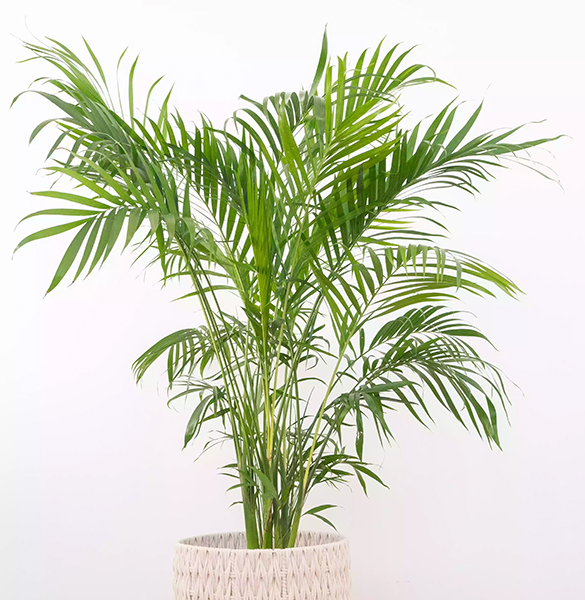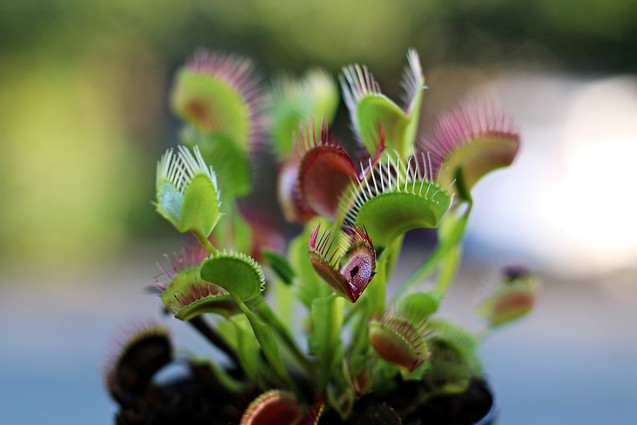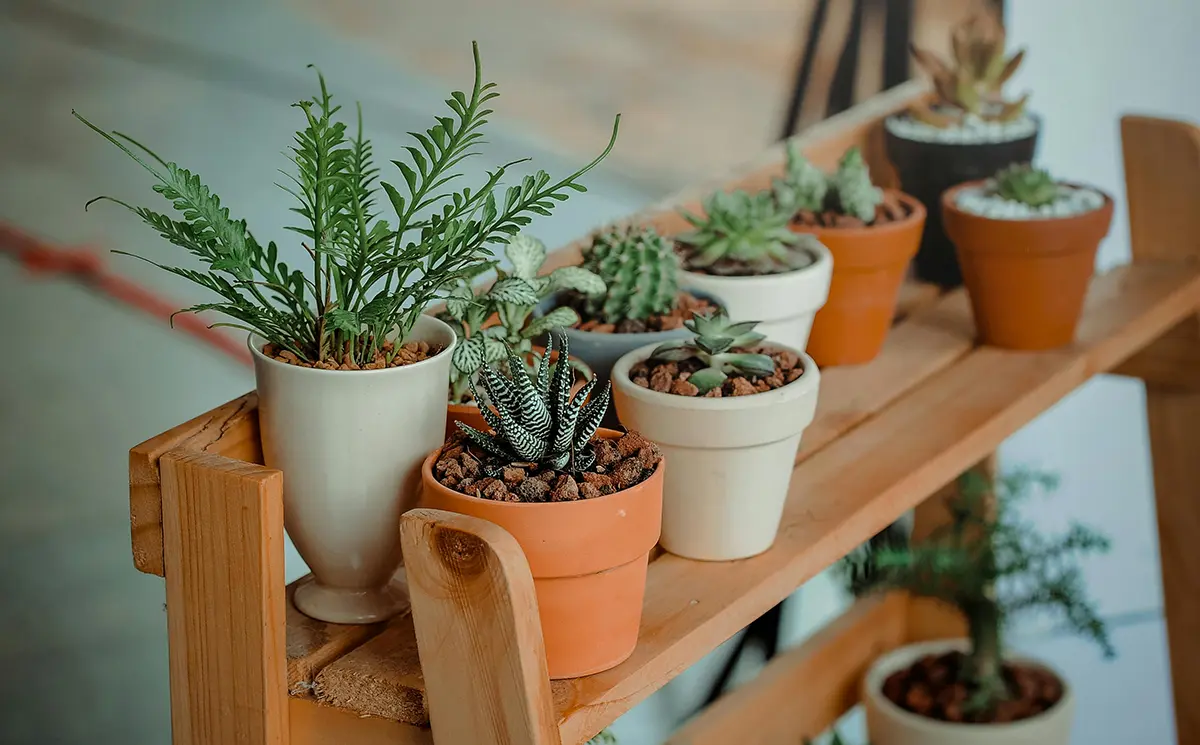Everyone wants a bit of greenery to help spruce up their home and provide a much-needed touch of freshness. Houseplants provide many benefits to a home, including reducing carbon dioxide, filtering pollutants, increasing humidity, and just looking beautiful! But finding indoor plants safe for cats or dogs can be a daunting task. Some plants can be poisonous when ingested and it’s not easy to keep our pets away from those tasty house plants.
We’ve collected the best indoor houseplants that not only enhance your home’s aesthetic appeal but also provide a pet-friendly environment where your four-legged friends can thrive without worry. Check out our list below:
Air Plants
Air plants are pet-friendly, low-maintenance plants that do not need soil to grow. They are often placed in glass containers and globes that keep them away from pets and children (and create lovely decorations). These hardy little plants tend to remain smaller than 12 inches. They thrive in bright, indirectly lit areas, and simply need a quick watering once a week.

African Violet
African violets are well known for their fuzzy leaves and pretty blossoms. The plants do well without full sun, and tend to thrive in the same moderate temperatures and average humidity common to the average apartment. These pleasant little plants are particularly fond of East-facing windows. With a little high-quality fertilizer, African violets can produce blossoms year-round.
Areca Palm
Areca palms are low-maintenance and pet-friendly, making them ideal for first-time houseplant growers. The delicately leafed tropical palm likes bright, indirect light, but also does well in low light. Water the palm when the top inch of soil feels dry, and your palm tree can grow to a height of eight feet (although four feet is more common).
Spider Plant
You may have encountered a spider plant at your grandmother’s house, or maybe you were given one by a friend or coworker. This popular houseplant looks great in a hanging basket, and the trailing leaves are harmless to curious pets and children. The “babies” that grow on the vines can be transplanted to create new plants, allowing you to give your own spider plant gifts to friends.

Venus Fly Trap
The Venus fly trap is a funky houseplant that is safe for cats and dogs. The carnivorous plant may even eradicate any stray flies from your apartment! The fascinating little plant grows well with a little fertilizer and distilled water, but the occasional fly that wanders into your apartment will be a special treat (and an interesting activity to watch).
Calathea
Calathea spp. is often referred called the zebra plant or peacock plant thanks to its showy foliage. Large, tropical leaves feature colorful stripes or stippling and provide a bold accent to your home décor. They do best in the shadier parts of your apartment – too much light can bleach the plants.

Orchid
If you can’t remember to water your house plants but yearn for colorful blooms during the winter months, orchids are an elegant choice to address both issues. These flowering plants generally bloom during the winter months when the days are short, and they require very little attention and watering.
Bromeliad
The unique, colorful bromeliad is easy to care for, pet-safe, and requires nothing more than a bright, sunny window and a little humidity (provided by a simple spritzer). Bromeliads don’t need soil to grow and can be grown from a log, offering an interesting display and an attractive alternative for pets who tend to dig in potting soil.
Rattlesnake Plant
The Rattlesnake Plant, scientifically known as Calathea lancifolia, is a stunning and exotic addition to any pet-friendly home. This tropical beauty earned its common name due to the distinctive pattern on its long, lance-shaped leaves, which resembles the skin of a rattlesnake. With its unique and captivating foliage, this houseplant adds a touch of the wild to your indoor space without posing any harm to your beloved cats and dogs.
Polka Dot Plant
The Polka Dot Plant is aptly named for its eye-catching leaves, which are adorned with a playful pattern of dots in various shades of pink, white, and green. Hypoestes phyllostachya is not just a visual delight; it’s also a low-maintenance choice, making it ideal for both novice and seasoned plant enthusiasts looking to brighten up their living spaces while ensuring their pet’s well-being.
Tips for Keeping Pets Away From Plants:
Pet-safe plants help ensure that nothing bad will happen if your cat decides to munch on your greenery. But ideally, we’d prefer to keep our plants free of teeth marks in the first place! Here are a few quick tips for keeping pets away from your houseplants.
- Place plants out of reach: Position your plants in areas where pets can’t easily access them. Hanging plants from the ceiling or placing them on high shelves can be effective ways to keep them away from curious paws.
- Provide alternative entertainment: Pets may be less interested in your plants if they have their own toys and activities to keep them occupied. Provide plenty of toys and playtime to divert their attention away from your plants.
- Use deterrents: There are pet-safe deterrent sprays available that can be applied to plants to discourage pets from chewing or digging. These sprays are typically odorless to humans but have a scent or taste that pets find unappealing.
- Training and positive reinforcement: Train your pets to stay away from plants using positive reinforcement techniques. Reward them with treats and praise when they avoid the plants. Consistency is key in training.
- Create a designated pet-friendly area: If you just can’t keep your pets out of your plants, you may need to designate a specific area in your home where your pets are allowed to roam freely and keep your plants out of this area. You could keep plants in rooms with doors that could be closed when you are out of the house and remove the temptation altogether.
Always be careful when bringing a new plant into your apartment. If you don’t know that a plant is safe, the ASPCA has a list of plants to avoid. You can also find out if the plant is poisonous with the House Plant Expert’s Guide.
If you are afraid that your pet may have eaten a poisonous plant, please visit the ASPCA Poison Control Center or call their hotline at 888-426-4435 immediately. If your child may have eaten a poisonous plant or any toxin, visit the American Association of Poison Control Centers or call 800-222-1222.




(434) 296-6200